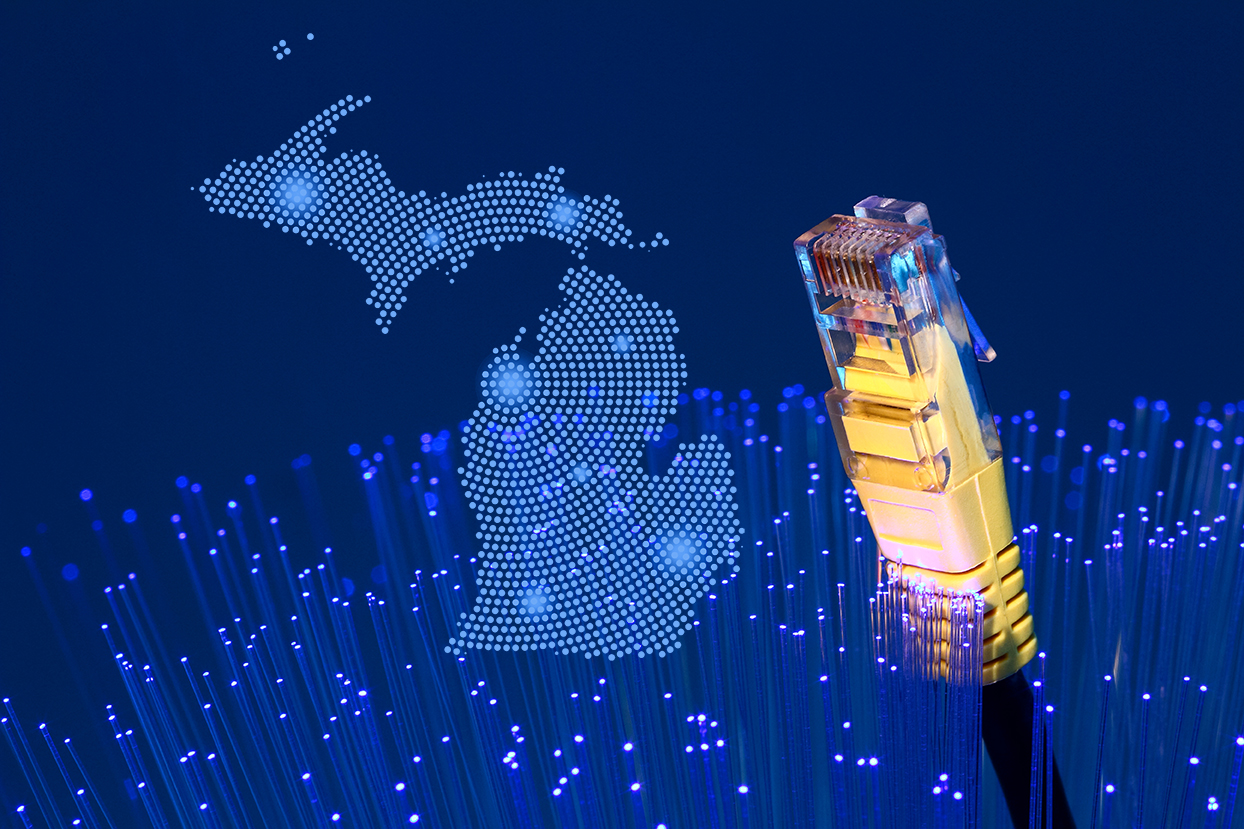Michigan has received $1.5 billion in federal funds to extend affordable, reliable, high-speed internet access to 210,000 households in parts of the state that currently have no internet service or struggle with spotty, slow coverage.
The money comes from the Broadband Equity, Access, and Deployment (BEAD) program created in President Biden’s infrastructure law that set aside $42 billion to close the national digital divide. The gap is particularly pronounced in Michigan’s rural communities, low-income families, the elderly, and Black and Latino communities, according to a 2021 report by the state Department of Labor and Economic Opportunity (LEO). In rural areas like Luce and Iron counties in the Upper Peninsula, less than half the homes and businesses have access to broadband.
According to Connect Nation, a nonprofit that tracks internet expansion, $2.5 billion in potential economic benefit is left unrealized every year because of the digital divide.
The Michigan Economic Development Corporation, which is leading the task force, decided about a year ago to put its full “oomph” behind the effort to ensure fast and affordable broadband “in every corner of the state,” the group’s COO, McClanahan, told Bridge Michigan.
The broadband gap is an economic issue because it’s “a limiter for talent attraction and talent retention,” said Amanda Bright McClanahan, COO of the Michigan Economic Development Corporation. “It is a limiter as communities are trying to attract businesses. It is a limiter as communities are trying to access education during the pandemic.”
The $1.5 billion grant is on top of than $700 million in federal funds that Michigan received earlier under President Biden’s “Internet for All” program, adding to $249 million from the state. But closing the digital divide is not easy.
Many companies hesitate to expand broadband in places where customer demand may not be enough to recoup the high cost of digging up roads, laying lines and delivering lines to individual homes or businesses.In rural areas, the undeveloped terrain can also pose physical obstacles that drive up installation costs even more. In response, the federal government is providing grants and low-interest loans to help defray the upfront costs of building out broadband networks. Whitmer’s MIHI oversees awarding the funds based on applications.
About one-third of Michigan households – 1.24 million – still do not have reliable, fast internet, according to the Michigan High-Speed Internet Office (MIHI). The impact can be serious. Students with access to high-speed internet at home have an average GPA of 3.18, while those without home internet access have a lower average GPA of 2.81. Students who rely solely on their phone for the internet have an even lower average GPA of 2.75. Additionally, small businesses with their own websites earn more yearly, and businesses that use social media regularly are three times more likely to have recently created a new job.
“Internet access is the most critical, enabling infrastructure that we can invest in. Whether you’re a student, an entrepreneur, a senior citizen, a farmer, a manufacturer, a job seeker, or any other Michigander, more opportunities and resources are available to you when you and your family are connected,” Lt. Governor Garlin Gilchrist II has said. “There is bipartisan consensus that we need to close gaps in internet access and adoption. This is our generational opportunity to leverage the tremendous resources that are being made available at the federal level to develop the innovative partnerships that will achieve the goal of getting every home and business the high-speed connection they need.”
Key Facts:
- Michigan has received $1.5 billion in federal funds to extend high-speed internet access to 210,000 households in underserved areas, aiming to close the digital divide.
- The initiative targets rural communities, low-income families, and minority groups, where less than half the homes have broadband access, to boost economic opportunities and connectivity.
- The funding will help overcome financial and physical barriers to broadband installation, with significant benefits for education, small businesses, and job creation in the state.



